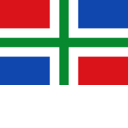Profil
Phrases
Vocabulaire
Révisions
Listes
Favoris
Commentaires
Commentaires sur les phrases de MarijnKp
Placards
Historique
Enregistrement sonore
Transcriptions
Traduire les phrases de MarijnKp
Contacter MarijnKp
Statistiques
- Commentaires publiés
- 1 357
- Phrases en possession
- 30 169
- Enregistrements sonores
- 0
- Phrases favorites
- 39
- Contributions
- 191 013
Préférences
- La notification par courriel est ACTIVE.
- L'accès à ce profil est PUBLIC. Chacun peut visualiser toutes les informations.

MarijnKp
My mother tongue is Dutch since it's the country where I live.
I also consider Gronings as my (second) mother tongue. Gronings is spoken in Groningen, a province in the north of the Netherlands. Gronings is considered as a dialect of Low Saxon, but most people here don't. Gronings also has dialects, so I'm actually speaking Veenkoloniaals and Oldamsters (because my parents are from those two different dialect areas). I'm speaking a mixture of those two dialects because we don't learn Gronings in school.
I'm adding sentences in the Hogelandster dialect. (There is not so much difference between the dialects of Gronings though). Hogelandsters is considered the purest form of Gronings.
So most of my sentences will be in Hogelandster and some will be in Veenkoloniaals or Oldamsters, but those sentences will have a tag.
Here are some sentences from the dialects of Gronings, Dutch and English to show the differences:
Hogelandsters: t Ainege dat wie nait doun is slik oetdailen.
Westerkwartiers: t Eenege dat wie niet doun is slik uutdeelen.
Stadjeders: t Oinege dat wie noit doun is baaltjes oetdailen.
Oldamsters: t Oinege dat wie noit doun is slik oetdailen.
Westerwolds: t Einege dat wie nich dun is slikkerij uutdeilen.
Veenkoloniaals: t Ainege wat wie nait dudden is slikke uutduilen.
Dutch: Het enige wat we niet doen is snoep uitdelen.
English: The only thing we don't do is hand out sweets.
However, these dialect can even differ in every village.
Some history about us Groningers and the language;
Originally, we were Frisians. East Frisians to be specific. The land located under Frisia, Drenthe, was inhibited by a Saxon tribe, called the Drenten. They founded a city in the Frisian lands. Eventually, around the year 1000, the city declared itself independent from Drenthe. This city, Groningen, was surrounded by the Frisians and they started to trade a lot with them. At this time, the city Groningen spoke the Saxon dialect, Old Drents, and the lands around it Old East Frisian. Together, the city was called Stad and the surroundings the Ommelanden. Eventually, around the 14th century, the city was so powerful in the region that the Ommelanden started to speak the language of the city. However, they kept a lot of Frisian vocabulary and so Old Gronings was born. In the 16th century, the standard language of the United Provinces of the Netherlands, Middle Dutch, started to have an influence on Gronings. So now, five centuries later, the Frisian people with a Saxon dialect heavily influenced by Dutch call themselves Groningers. (Tip: Never call a Groninger a Frisian)
So that's why I've also learned some Frisian and focus sometimes on East Frisian (Saterland Frisian).
Feel free to ask me about my languages or life. :)
-Gronings-
As op n dag aine hier komt dij ook Grunnegs proat, vuil die vrai om mie wat te vroagen of mien zinnen te klandern. Mien zinnen binnen noaturelk nait zunder fouten en al haildaal nait omreden der gain aandere Grunneger biedroagers nou binnen.
Het zel noaturelk n beetje vrumd worden mit Grunnegse zinnen in twij dialekten, mor n goie label veur t dialekt of meschain n andere oplossen zel ook goud wezen.
Astoe ook Hoogelaandster kinst zel t super wezen en asnog kin t aanders wezen, omreden der zulfs verschelen binnen binnen n dialekt. Hier volgen n poar of de regels of t Grunnegs dij ik broek.
t Gebroek van;
- ai ien stee van oi (nait, gain, aine)
- oe ien stee van uu (broeken, hoes, moes, toen, oet)
- Allain t lidwoord t en nait de
- Bie twijde persoon enkelvold -st (sums ien Hoogelaandsters ook -s, biev loops, waarks, denks)
- "ien" ien stee van "in" zo as bie ien en kiender
- Mainsttied gain -e op t ìnde. Mit oetzunders zo as buutse en bliede.
- Altied "joe" en nait "ie" veur twijde persoon meervold
- Mainsttied gain tekens, behaalven as t verscheel dudelk moakt worden mòt. (Veurbeeld mòt en mót)
Langues
Aucune langue ajoutée.
CONSEIL : encouragez cet utilisateur à indiquer les langues qu'il connaît.
{{lang.name}}
{{lang.details}}
